
From Beirut to Jerusalem
by Thomas L. Friedman · 1 Jan 1989 · 639pp · 212,079 words
father for too long as this book was in progress. I only hope when they grow old enough to read it, they will appreciate why. Thomas L. Friedman Washington, D. C. March 1989 Index The index that appeared in the print version of this title does not match the pages of your eBook
…
. B. Yisrael, Lieutenant Colonel Yom Hazikaron Yosef, Ovadia Yunis (bartender) Zamir, David Zamir, Yitzhak Zaroubi, Elizabeth Zenian, David Zucchino, Adrien Zucchino, David About the Author Thomas L. Friedman was born in Minneapolis in 1953. He graduated from Brandeis University to study on a Marshall Scholarship at St. Antony’s College, Oxford, earning his
…
land be allowed to lie fallow. Haggai Segal, Dear Brothers: The West Bank Jewish Underground (Beit-Shamai Publications, Inc., 1988). Copyright © 1989 by Thomas L. Friedman Epilogue copyright © 1990 by Thomas L. Friedman ALL RIGHTS RESERVED FIRST ANCHOR BOOKS EDITION: AUGUST 1990 AN ANCHOR BOOK PUBLISHED BY DOUBLEDAY a division of Bantam Doubleday Dell Publishing Group
…
conducted by Morgan Strong. eISBN 9780374706999 First eBook Edition : March 2011 Library of Congress Cataloging-in-Publication Data Friedman, Thomas L. From Beirut to Jerusalem / Thomas L. Friedman. —1st Anchor Books ed. p. cm. Reprint. Originally published: New York: Farrar, Straus & Giroux, 1989. 1. Jewish-Arab relations—1973–2. Israel-Arab conflicts. 3
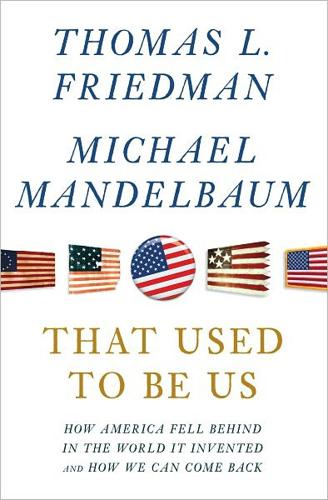
That Used to Be Us
by Thomas L. Friedman and Michael Mandelbaum · 1 Sep 2011 · 441pp · 136,954 words
and expectations for the future are high. We know that America can meet its challenges. After all, that’s the America where we grew up. Thomas L. Friedman Michael Mandelbaum Bethesda, Maryland, June 2011 PART I THE DIAGNOSIS ONE If You See Something, Say Something This is a book about America that begins
…
. That is why, today, the history books we need to read are our own and the country we need to rediscover is America. ALSO BY THOMAS L. FRIEDMAN From Beirut to Jerusalem (1989) The Lexus and the Olive Tree (1999) Longitudes and Attitudes (2002) The World Is Flat (2005) Hot, Flat, and Crowded
…
, Angela Yu-Yun Ying, Lori YouTube Z Zellweger, Renée Zhang Huamei Zhao, Alice Wei Zhou, Linda Zimbabwe Zuckerberg, Mark Zynga A NOTE ABOUT THE AUTHORS Thomas L. Friedman is a three-time recipient of the Pulitzer Prize for his work with The New York Times and is the author of five bestselling books
…
-author of twelve books, including The Ideas That Conquered the World: Peace, Democracy, and Free Markets in the Twenty-first Century (2002). Copyright © 2011 by Thomas L. Friedman and Michael Mandelbaum All rights reserved Farrar, Straus and Giroux 18 West 18th Street, New York 10011 Designed by Jonathan D. Lippincott eISBN 9781429995115 First
…
-Publication Data Friedman, Thomas L. That used to be us : how America fell behind in the world it invented and how we can come back / Thomas L. Friedman and Michael Mandelbaum.—1st ed. p. cm. Includes index. 1. Creative ability—United States. 2. Education and state—United States. 3. Information technology—Social aspects
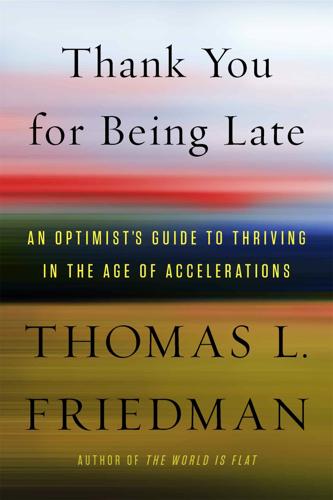
Thank You for Being Late: An Optimist's Guide to Thriving in the Age of Accelerations
by Thomas L. Friedman · 22 Nov 2016 · 602pp · 177,874 words
hard work of adaptation. This theme has so permeated my reporting that I have been tempted at times to change my business card to read: “Thomas L. Friedman, New York Times Global Humiliation Correspondent.” There is a simple but well-known golf story that carries a deep truth about how cultural dispositions shape
…
inspiration. With so many generous friends and family members from so many places for so many years, how could I not still be an optimist? Thomas L. Friedman Bethesda, Maryland (but really still from Minnesota) August 2016 Index The index that appeared in the print version of this title does not match the
…
Yeni Medya (New Media Inc.) Yeo, George Yildiz, Sadik YouTube; advertising/ISIS video controversy and Zambrano, Patricio Zedillo, Ernesto Zelle, Charlie Zika virus ALSO BY THOMAS L. FRIEDMAN From Beirut to Jerusalem (1989) The Lexus and the Olive Tree (1999) Longitudes and Attitudes (2002) The World Is Flat (2005) Hot, Flat, and Crowded
…
(2008) That Used to Be Us (with Michael Mandelbaum, 2011) A Note About the Author Thomas L. Friedman is a three-time recipient of the Pulitzer Prize for his work with The New York Times and is the author of six bestselling books
…
!) PART IV: ANCHORING 14. From Minnesota to the World and Back Acknowledgments Index Also by Thomas L. Friedman A Note About the Author Copyright Farrar, Straus and Giroux 18 West 18th Street, New York 10011 Copyright © 2016 by Thomas L. Friedman All rights reserved First edition, 2016 Grateful acknowledgement is made for permission to reprint the
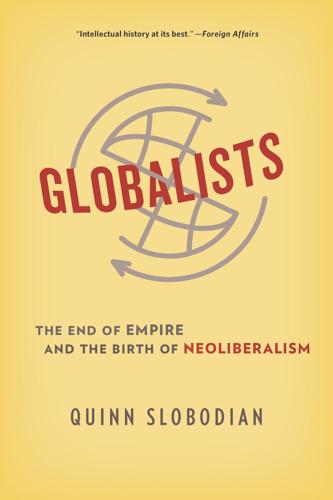
Globalists
by Quinn Slobodian · 16 Mar 2018 · 451pp · 142,662 words
Empire Strikes Back,” SUNS—South North Development Monitor, September 20, 1999; Michael Hardt and Antonio Negri, Empire (Cambridge, MA: Harvard University Press, 2000). 5. See Thomas L. Friedman, The World Is Flat: A Brief History of the Twenty-First Century (New York: Farrar, Straus and Giroux, 2005). 6. Rajesh Venugopal, “Neoliberalism as Concept
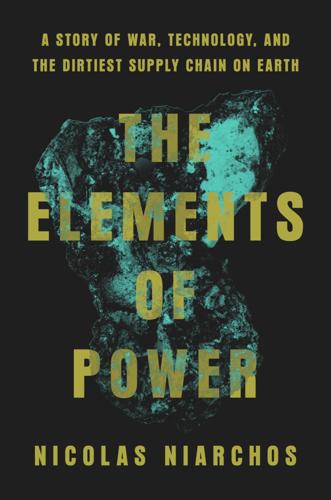
The Elements of Power: A Story of War, Technology, and the Dirtiest Supply Chain on Earth
by Nicolas Niarchos · 20 Jan 2026 · 654pp · 170,150 words
students open-sourced the best ways to build such a machine. When the MIT students who started the project met with The New York Times’ Thomas L. Friedman in late 2007, he wrote enthusiastically of the project, suggesting that they were making “the Linux of cars.” The students, Friedman said, “blew me away
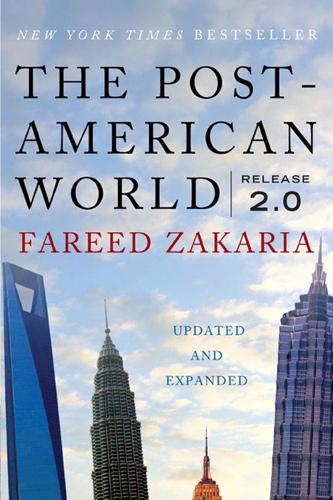
The Post-American World: Release 2.0
by Fareed Zakaria · 1 Jan 2008 · 344pp · 93,858 words
Anna Stupnytska, The Long-term Outlook for the BRICs and N-11 Post Crisis (Goldman Sachs, Global Eonomics Paper no. 192, Dec. 4, 2009). 12. Thomas L. Friedman, The World Is Flat: A Brief History of the Twenty-first Century (New York: Farrar, Straus and Giroux, 2006), 226. Andy Grove’s statement is
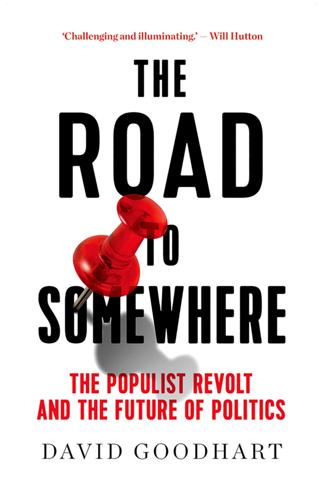
The Road to Somewhere: The Populist Revolt and the Future of Politics
by David Goodhart · 7 Jan 2017 · 382pp · 100,127 words
://ft.com/content/328f15da-fa4e-11e5-8f41-df5bda8beb40 5.Alexander Betts and Paul Collier, Refuge: Transforming a Broken Refugee System, London, London: Penguin, forthcoming. 6.Thomas L. Friedman, The World is Flat: The Globalized World in the Twenty-first Century, Penguin, 2007. 7.Pankaj Ghemawat, ‘Distance Still Matters’, Harvard Business Review, September 2001
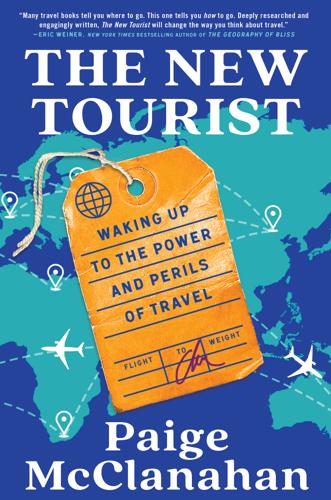
The New Tourist: Waking Up to the Power and Perils of Travel
by Paige McClanahan · 17 Jun 2024 · 206pp · 78,882 words
, “Instagram Abroad: Performance, Consumption and Colonial Narrative in Tourism,” Postcolonial Studies 21, no. 2 (April 2018): 1–20. Chapter Three Tourism Comes to Power 1 Thomas L. Friedman, The World Is Flat (New York: Farrar, Straus and Giroux, 2005), 173–74. 2 Joseph S. Nye Jr., Soft Power: The Means to Success in
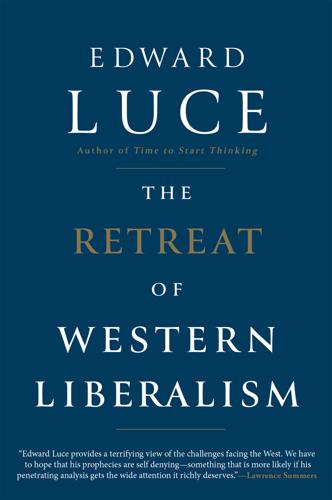
The Retreat of Western Liberalism
by Edward Luce · 20 Apr 2017 · 223pp · 58,732 words
-11e6-9b66-0712b3873ae1>. 77 Dani Rodrik, The Globalization Paradox: Democracy and the Future of the World Economy (W. W. Norton & Company, New York, 2011). 78 Thomas L. Friedman, The Lexus and the Olive Tree: Understanding Globalization (Farrar, Straus & Giroux, New York, 2000). Part Two: Reaction 1 Samuel Huntington describes mid-1970s Europe onwards
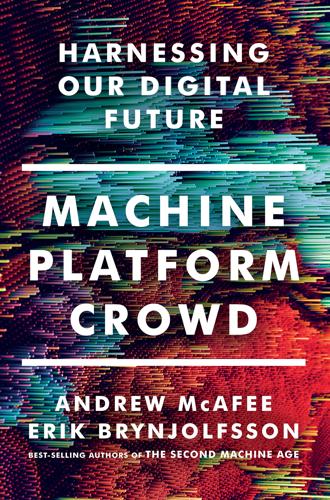
Machine, Platform, Crowd: Harnessing Our Digital Future
by Andrew McAfee and Erik Brynjolfsson · 26 Jun 2017 · 472pp · 117,093 words
: PlasticsEurope, “Automotive: The World Moves with Plastics,” 2013, http://www.plasticseurope.org/cust/documentrequest.aspx?DocID=58353. 105 For one thing, complexity would be free: Thomas L. Friedman, “When Complexity Is Free,” New York Times, September 14, 2013, http://www.nytimes.com/2013/09/15/opinion/sunday/friedman-when-complexity-is-free.html
…
-season-and-more-activity-by-national-advertisers-119180284.html. 135 Clear Channel: Waldman, “Information Needs of Communities.” 135 “what happens when someone does something clever”: Thomas L. Friedman, Thank You for Being Late: An Optimist’s Guide to Thriving in the Age of Accelerations (New York: Farrar, Straus, and Giroux, 2016), Kindle ed
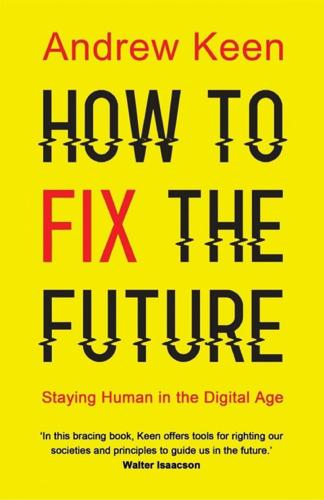
How to Fix the Future: Staying Human in the Digital Age
by Andrew Keen · 1 Mar 2018 · 308pp · 85,880 words
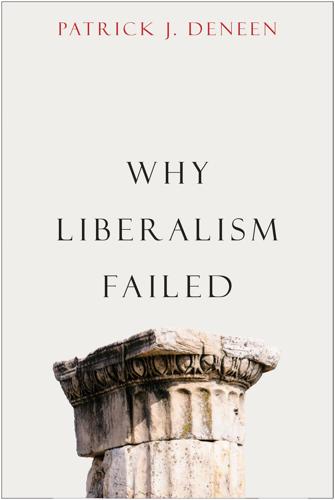
Why Liberalism Failed
by Patrick J. Deneen · 9 Jan 2018 · 215pp · 61,435 words
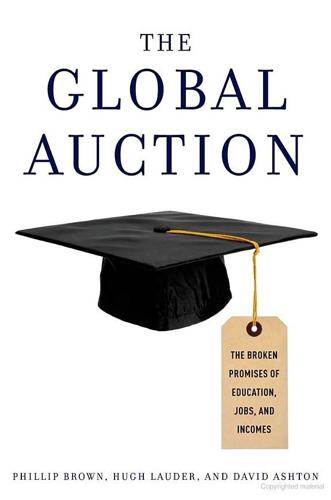
The Global Auction: The Broken Promises of Education, Jobs, and Incomes
by Phillip Brown, Hugh Lauder and David Ashton · 3 Nov 2010 · 209pp · 80,086 words
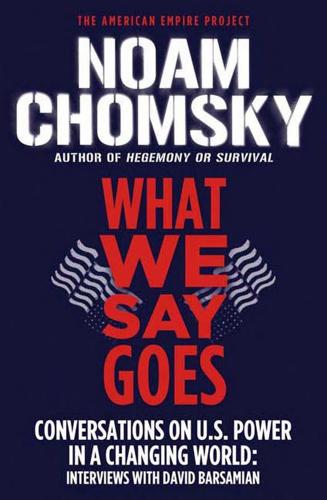
What We Say Goes: Conversations on U.S. Power in a Changing World
by Noam Chomsky and David Barsamian · 1 Oct 2007
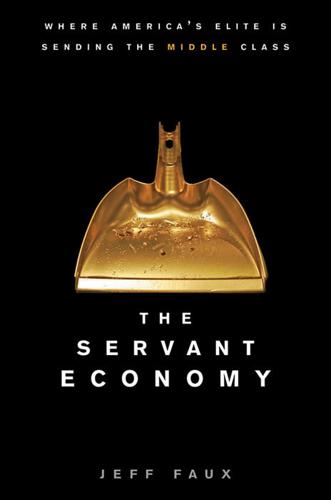
Servant Economy: Where America's Elite Is Sending the Middle Class
by Jeff Faux · 16 May 2012 · 364pp · 99,613 words
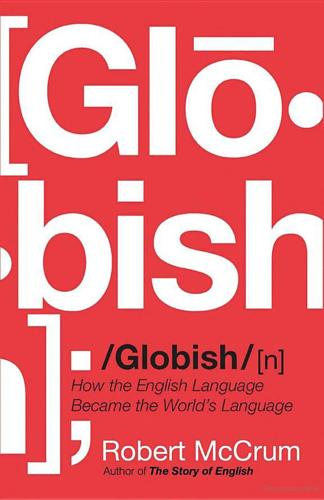
Globish: How the English Language Became the World's Language
by Robert McCrum · 24 May 2010 · 325pp · 99,983 words
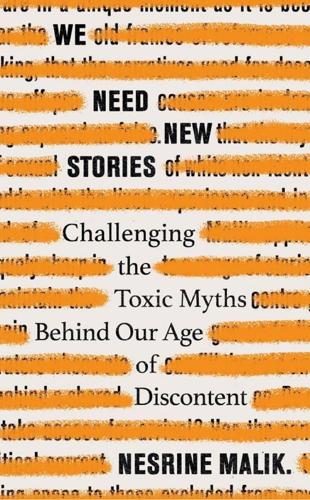
We Need New Stories: Challenging the Toxic Myths Behind Our Age of Discontent
by Nesrine Malik · 4 Sep 2019

My Glorious Defeats: Hacktivist, Narcissist, Anonymous: A Memoir
by Barrett Brown · 8 Jul 2024 · 332pp · 110,397 words
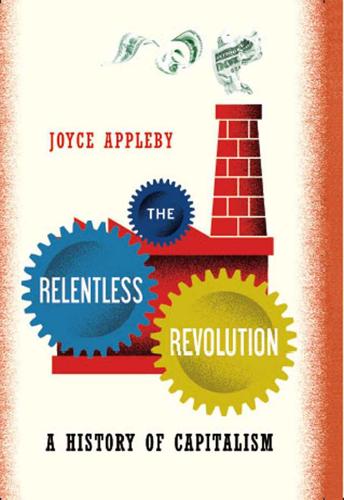
The Relentless Revolution: A History of Capitalism
by Joyce Appleby · 22 Dec 2009 · 540pp · 168,921 words
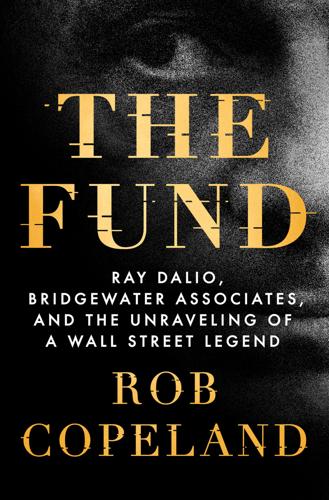
The Fund: Ray Dalio, Bridgewater Associates, and the Unraveling of a Wall Street Legend
by Rob Copeland · 7 Nov 2023 · 412pp · 122,655 words
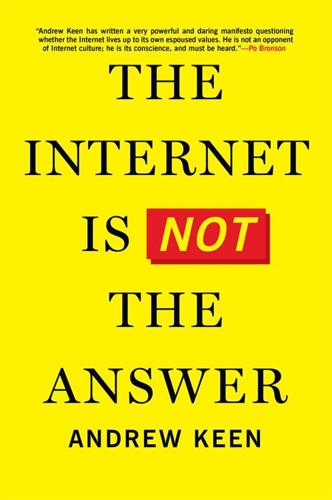
The Internet Is Not the Answer
by Andrew Keen · 5 Jan 2015 · 361pp · 81,068 words

Hiding in Plain Sight: The Invention of Donald Trump and the Erosion of America
by Sarah Kendzior · 6 Apr 2020
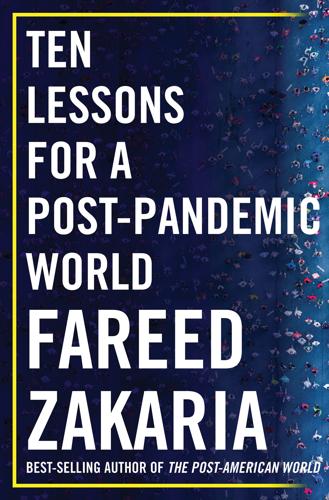
Ten Lessons for a Post-Pandemic World
by Fareed Zakaria · 5 Oct 2020 · 289pp · 86,165 words
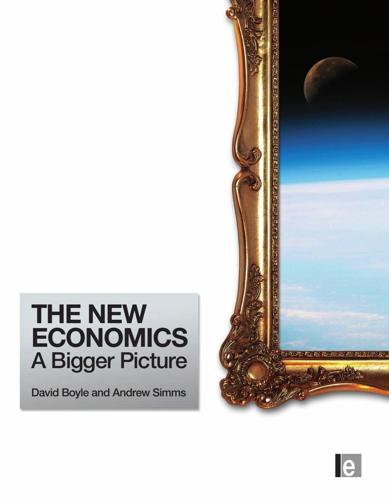
The New Economics: A Bigger Picture
by David Boyle and Andrew Simms · 14 Jun 2009 · 207pp · 86,639 words
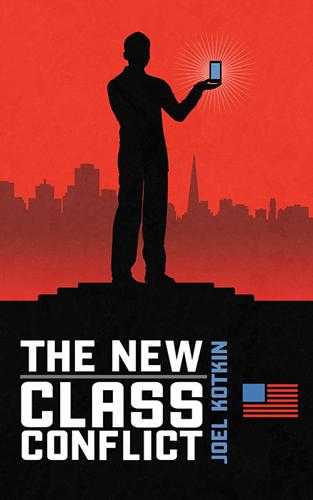
The New Class Conflict
by Joel Kotkin · 31 Aug 2014 · 362pp · 83,464 words
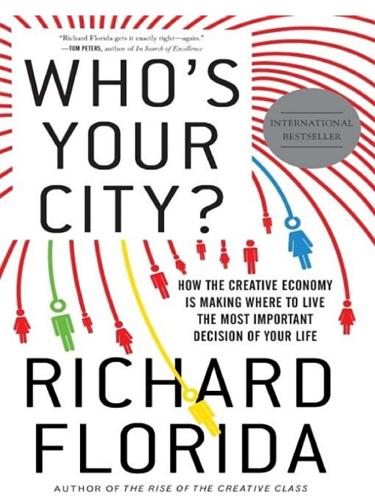
Who's Your City?: How the Creative Economy Is Making Where to Live the Most Important Decision of Your Life
by Richard Florida · 28 Jun 2009 · 325pp · 73,035 words
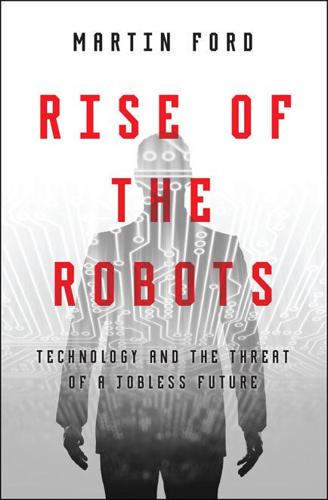
Rise of the Robots: Technology and the Threat of a Jobless Future
by Martin Ford · 4 May 2015 · 484pp · 104,873 words
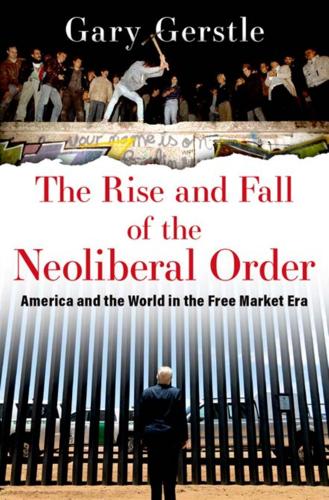
The Rise and Fall of the Neoliberal Order: America and the World in the Free Market Era
by Gary Gerstle · 14 Oct 2022 · 655pp · 156,367 words
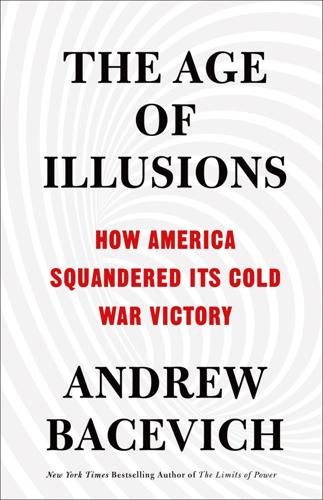
The Age of Illusions: How America Squandered Its Cold War Victory
by Andrew J. Bacevich · 7 Jan 2020 · 254pp · 68,133 words

The Case for Israel
by Alan Dershowitz · 31 Jul 2003
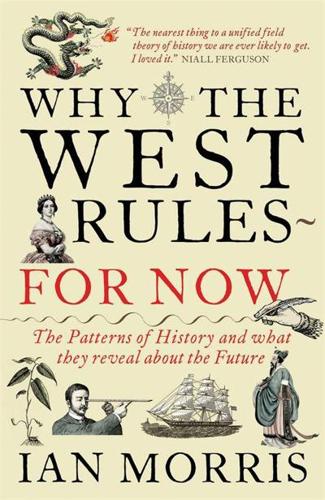
Why the West Rules--For Now: The Patterns of History, and What They Reveal About the Future
by Ian Morris · 11 Oct 2010 · 1,152pp · 266,246 words
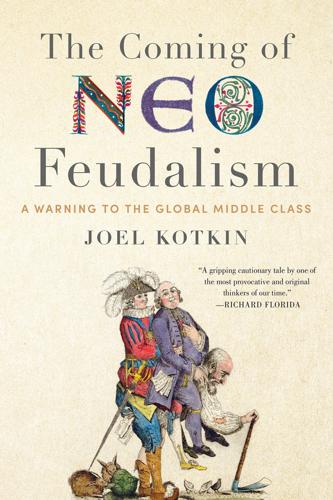
The Coming of Neo-Feudalism: A Warning to the Global Middle Class
by Joel Kotkin · 11 May 2020 · 393pp · 91,257 words
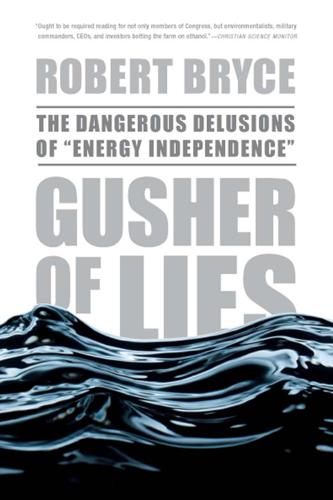
Gusher of Lies: The Dangerous Delusions of Energy Independence
by Robert Bryce · 16 Mar 2011 · 415pp · 103,231 words
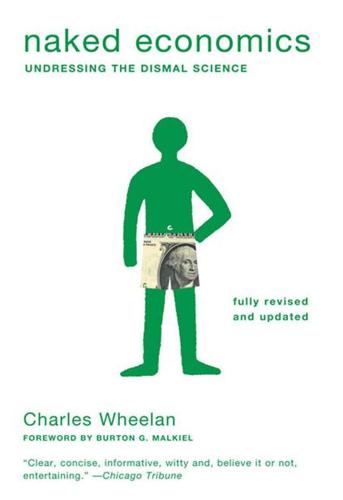
Naked Economics: Undressing the Dismal Science (Fully Revised and Updated)
by Charles Wheelan · 18 Apr 2010 · 386pp · 122,595 words
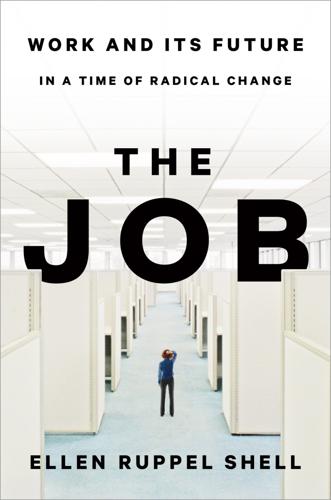
The Job: The Future of Work in the Modern Era
by Ellen Ruppel Shell · 22 Oct 2018 · 402pp · 126,835 words
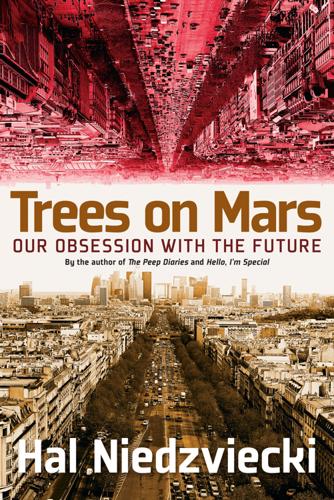
Trees on Mars: Our Obsession With the Future
by Hal Niedzviecki · 15 Mar 2015 · 343pp · 102,846 words
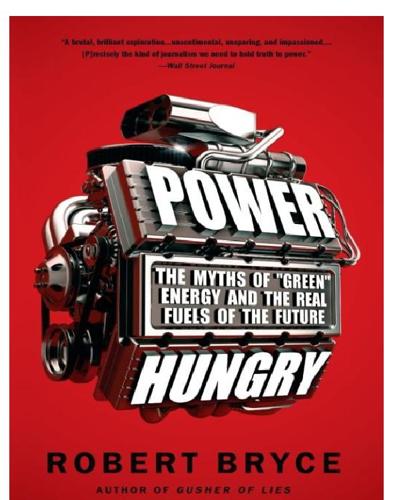
Power Hungry: The Myths of "Green" Energy and the Real Fuels of the Future
by Robert Bryce · 26 Apr 2011 · 520pp · 129,887 words
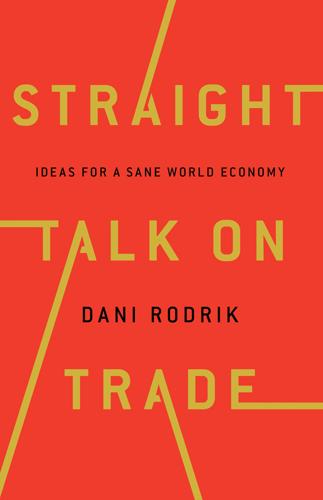
Straight Talk on Trade: Ideas for a Sane World Economy
by Dani Rodrik · 8 Oct 2017 · 322pp · 87,181 words
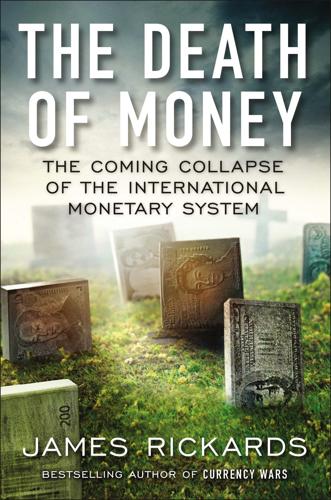
The Death of Money: The Coming Collapse of the International Monetary System
by James Rickards · 7 Apr 2014 · 466pp · 127,728 words
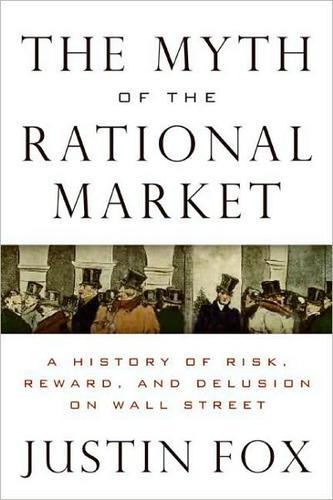
The Myth of the Rational Market: A History of Risk, Reward, and Delusion on Wall Street
by Justin Fox · 29 May 2009 · 461pp · 128,421 words
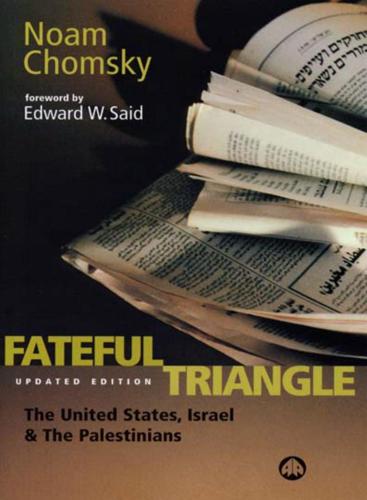
Fateful Triangle: The United States, Israel, and the Palestinians (Updated Edition) (South End Press Classics Series)
by Noam Chomsky · 1 Apr 1999
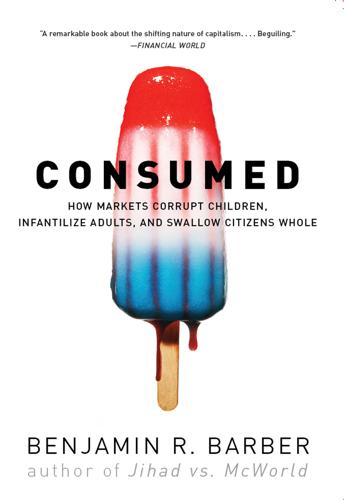
Consumed: How Markets Corrupt Children, Infantilize Adults, and Swallow Citizens Whole
by Benjamin R. Barber · 1 Jan 2007 · 498pp · 145,708 words
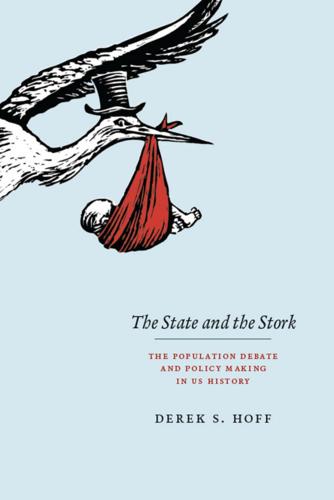
The State and the Stork: The Population Debate and Policy Making in US History
by Derek S. Hoff · 30 May 2012
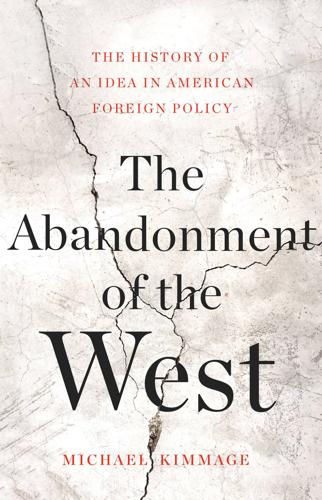
The Abandonment of the West
by Michael Kimmage · 21 Apr 2020 · 378pp · 121,495 words

Post Wall: Rebuilding the World After 1989
by Kristina Spohr · 23 Sep 2019 · 1,123pp · 328,357 words
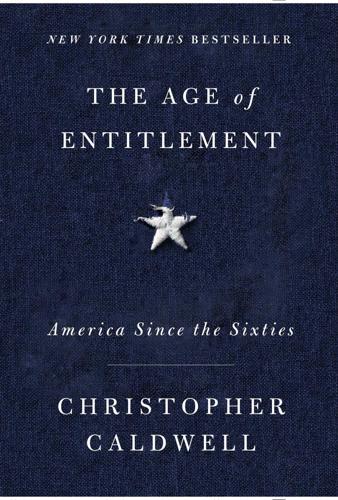
The Age of Entitlement: America Since the Sixties
by Christopher Caldwell · 21 Jan 2020 · 450pp · 113,173 words
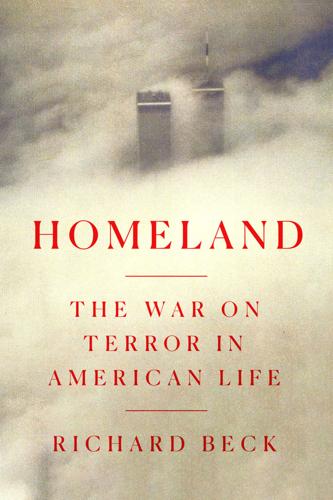
Homeland: The War on Terror in American Life
by Richard Beck · 2 Sep 2024 · 715pp · 212,449 words
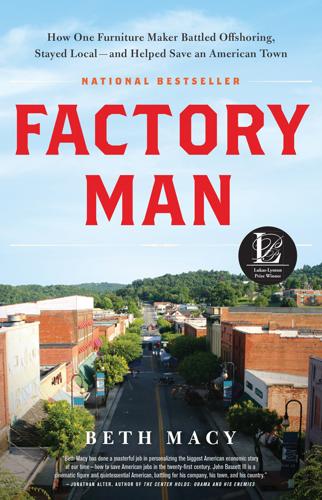
Factory Man: How One Furniture Maker Battled Offshoring, Stayed Local - and Helped Save an American Town
by Beth Macy · 14 Jul 2014 · 473pp · 140,480 words
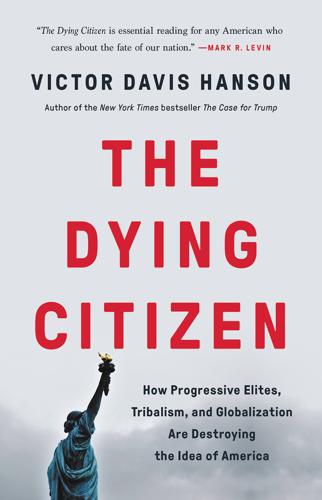
The Dying Citizen: How Progressive Elites, Tribalism, and Globalization Are Destroying the Idea of America
by Victor Davis Hanson · 15 Nov 2021 · 458pp · 132,912 words
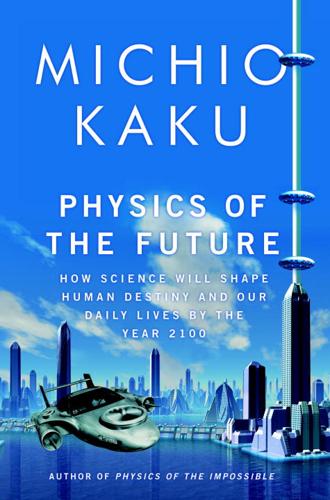
Physics of the Future: How Science Will Shape Human Destiny and Our Daily Lives by the Year 2100
by Michio Kaku · 15 Mar 2011 · 523pp · 148,929 words
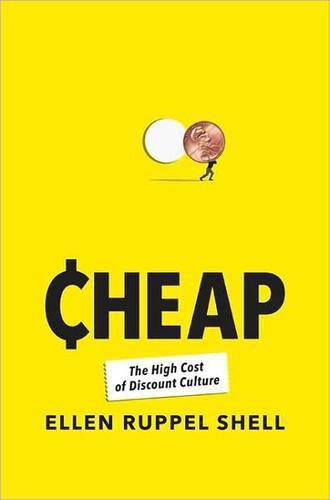
Cheap: The High Cost of Discount Culture
by Ellen Ruppel Shell · 2 Jul 2009 · 387pp · 110,820 words
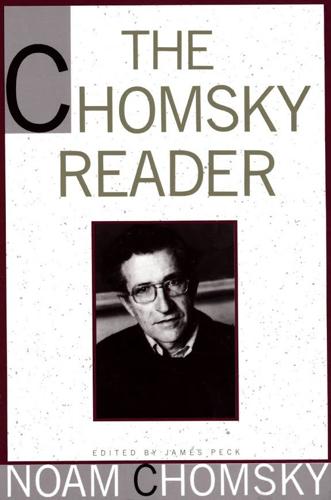
The Chomsky Reader
by Noam Chomsky · 11 Sep 1987
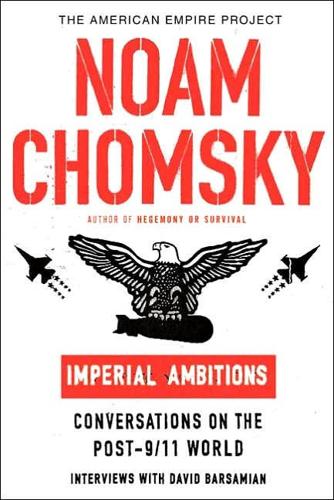
Imperial Ambitions: Conversations on the Post-9/11 World
by Noam Chomsky and David Barsamian · 4 Oct 2005 · 165pp · 47,405 words

The Israel Lobby and U.S. Foreign Policy
by John J. Mearsheimer and Stephen M. Walt · 3 Sep 2007 · 801pp · 229,742 words
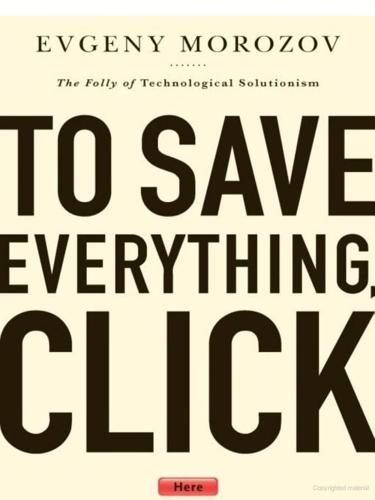
To Save Everything, Click Here: The Folly of Technological Solutionism
by Evgeny Morozov · 15 Nov 2013 · 606pp · 157,120 words
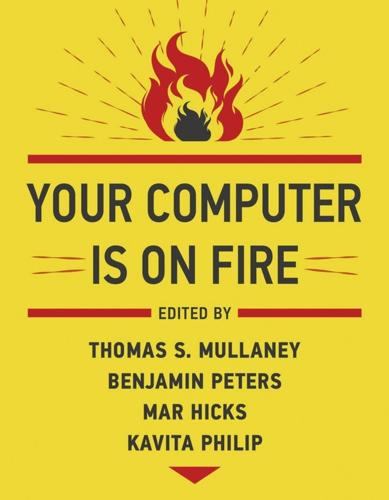
Your Computer Is on Fire
by Thomas S. Mullaney, Benjamin Peters, Mar Hicks and Kavita Philip · 9 Mar 2021 · 661pp · 156,009 words
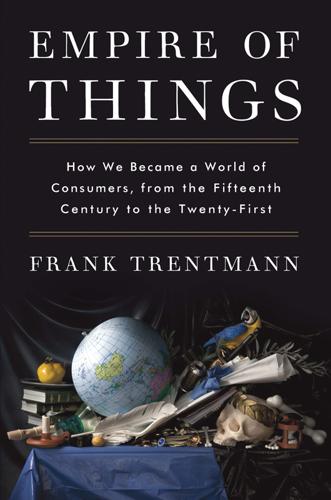
Empire of Things: How We Became a World of Consumers, From the Fifteenth Century to the Twenty-First
by Frank Trentmann · 1 Dec 2015 · 1,213pp · 376,284 words
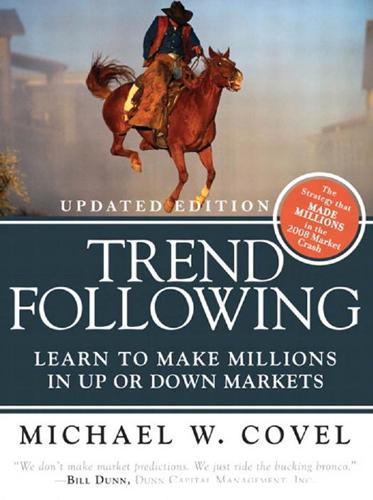
Trend Following: How Great Traders Make Millions in Up or Down Markets
by Michael W. Covel · 19 Mar 2007 · 467pp · 154,960 words

The Right Side of History
by Ben Shapiro · 11 Feb 2019 · 270pp · 71,659 words
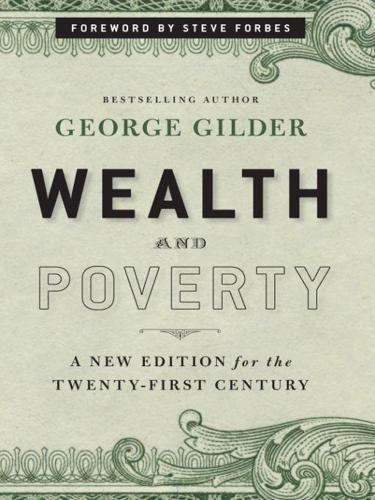
Wealth and Poverty: A New Edition for the Twenty-First Century
by George Gilder · 30 Apr 1981 · 590pp · 153,208 words
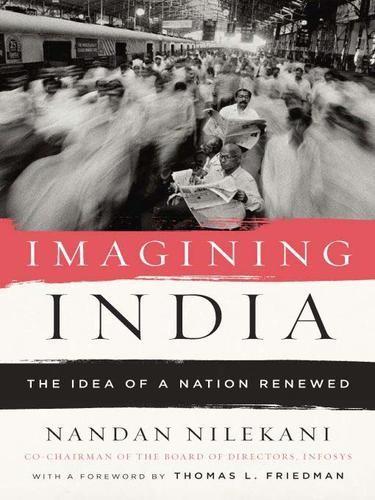
Imagining India
by Nandan Nilekani · 25 Nov 2008 · 777pp · 186,993 words
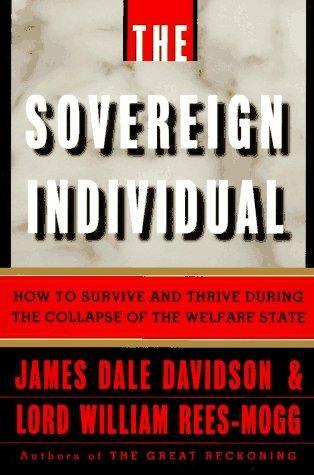
The Sovereign Individual: How to Survive and Thrive During the Collapse of the Welfare State
by James Dale Davidson and William Rees-Mogg · 3 Feb 1997 · 582pp · 160,693 words
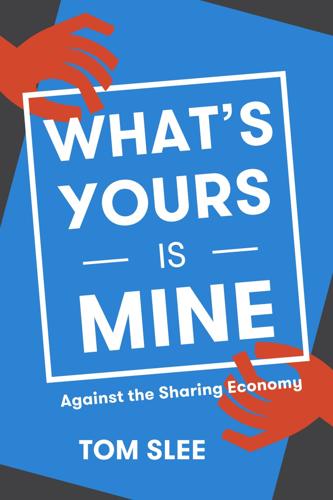
What's Yours Is Mine: Against the Sharing Economy
by Tom Slee · 18 Nov 2015 · 265pp · 69,310 words
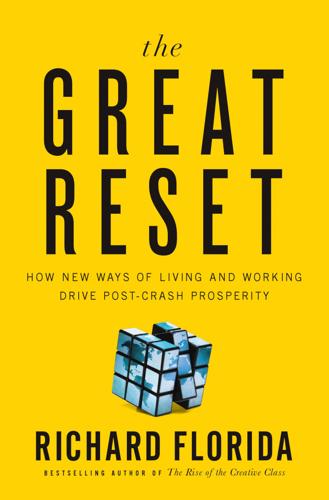
The Great Reset: How the Post-Crash Economy Will Change the Way We Live and Work
by Richard Florida · 22 Apr 2010 · 265pp · 74,941 words
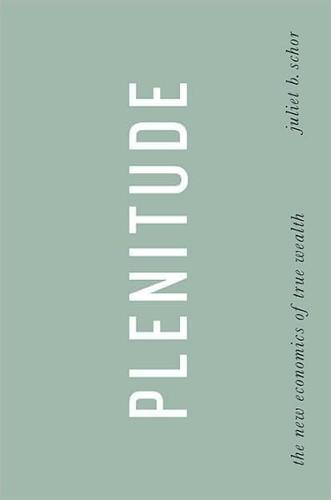
Plenitude: The New Economics of True Wealth
by Juliet B. Schor · 12 May 2010 · 309pp · 78,361 words
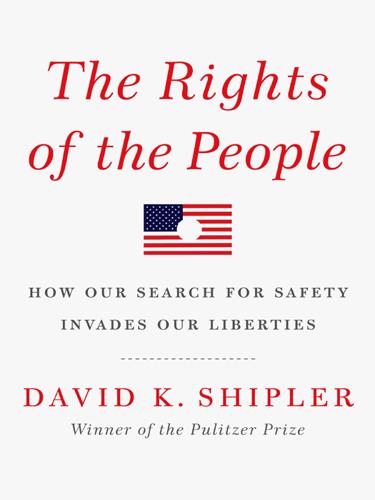
The Rights of the People
by David K. Shipler · 18 Apr 2011 · 495pp · 154,046 words
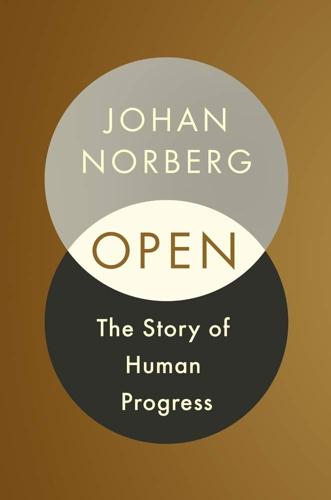
Open: The Story of Human Progress
by Johan Norberg · 14 Sep 2020 · 505pp · 138,917 words
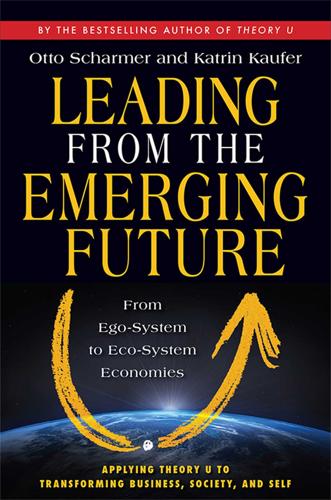
Leading From the Emerging Future: From Ego-System to Eco-System Economies
by Otto Scharmer and Katrin Kaufer · 14 Apr 2013 · 351pp · 93,982 words
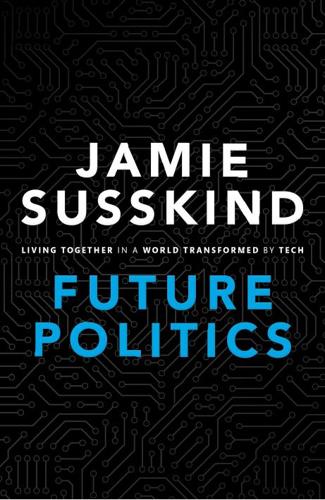
Future Politics: Living Together in a World Transformed by Tech
by Jamie Susskind · 3 Sep 2018 · 533pp
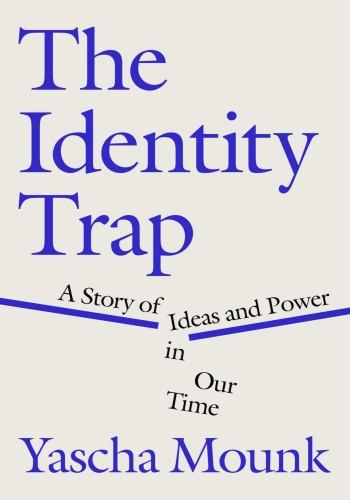
The Identity Trap: A Story of Ideas and Power in Our Time
by Yascha Mounk · 26 Sep 2023
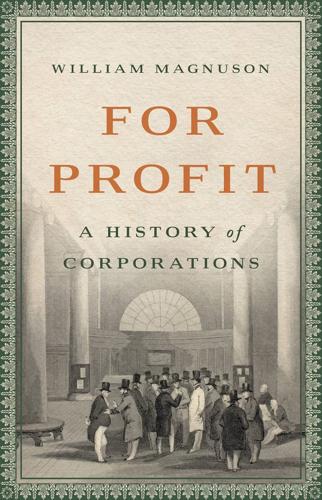
For Profit: A History of Corporations
by William Magnuson · 8 Nov 2022 · 356pp · 116,083 words
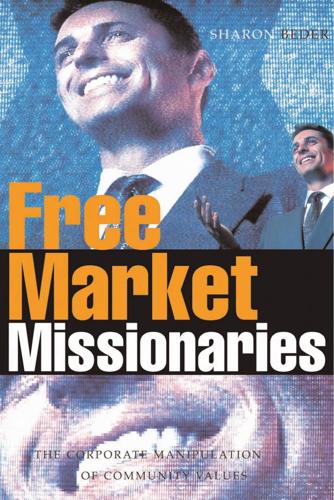
Free Market Missionaries: The Corporate Manipulation of Community Values
by Sharon Beder · 30 Sep 2006 · 273pp · 34,920 words
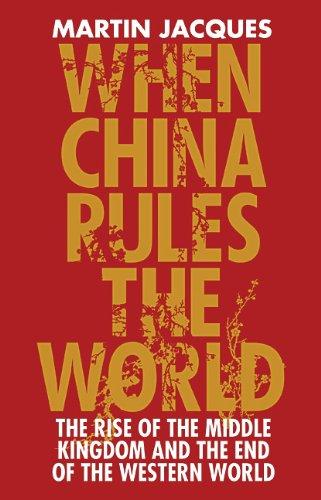
When China Rules the World: The End of the Western World and the Rise of the Middle Kingdom
by Martin Jacques · 12 Nov 2009 · 859pp · 204,092 words
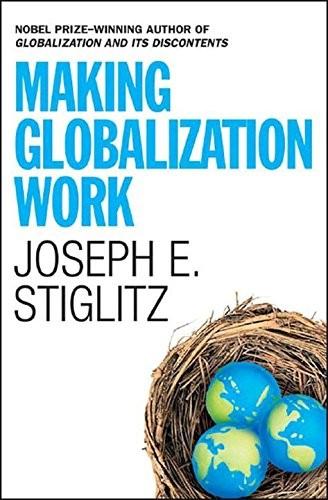
Making Globalization Work
by Joseph E. Stiglitz · 16 Sep 2006
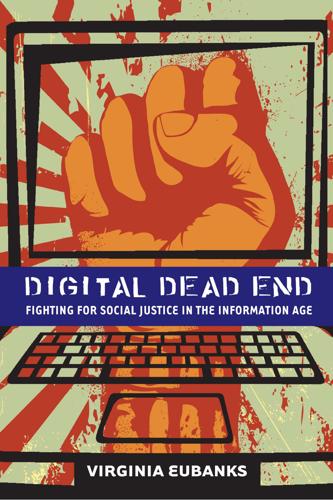
Digital Dead End: Fighting for Social Justice in the Information Age
by Virginia Eubanks · 1 Feb 2011 · 289pp · 99,936 words

Aerotropolis
by John D. Kasarda and Greg Lindsay · 2 Jan 2009 · 603pp · 182,781 words
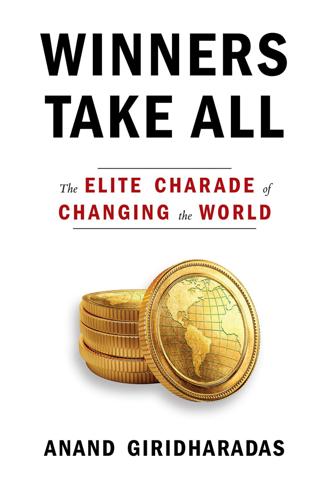
Winners Take All: The Elite Charade of Changing the World
by Anand Giridharadas · 27 Aug 2018 · 296pp · 98,018 words
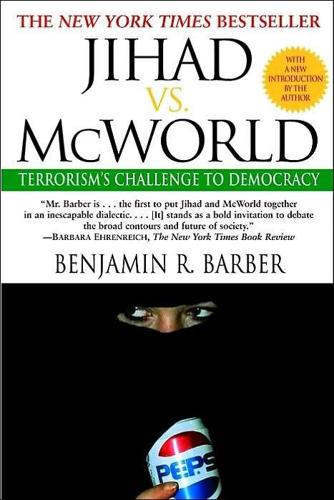
Jihad vs. McWorld: Terrorism's Challenge to Democracy
by Benjamin Barber · 20 Apr 2010 · 454pp · 139,350 words

The Origins of Political Order: From Prehuman Times to the French Revolution
by Francis Fukuyama · 11 Apr 2011 · 740pp · 217,139 words
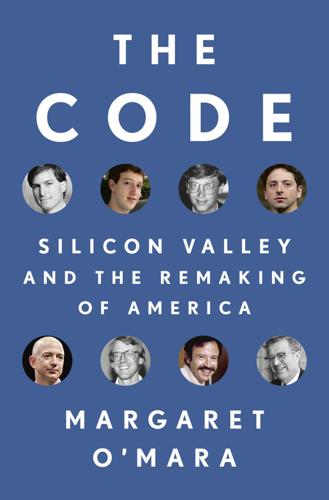
The Code: Silicon Valley and the Remaking of America
by Margaret O'Mara · 8 Jul 2019
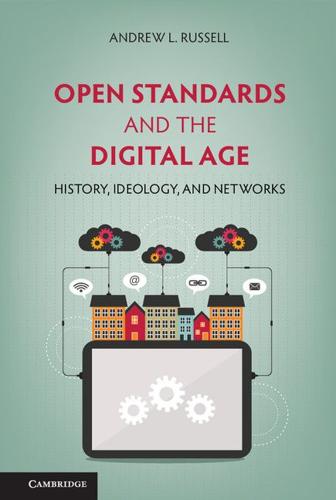
Open Standards and the Digital Age: History, Ideology, and Networks (Cambridge Studies in the Emergence of Global Enterprise)
by Andrew L. Russell · 27 Apr 2014 · 675pp · 141,667 words
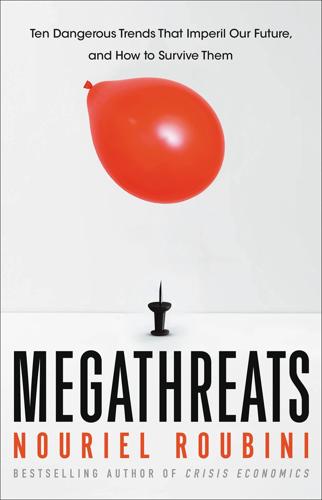
MegaThreats: Ten Dangerous Trends That Imperil Our Future, and How to Survive Them
by Nouriel Roubini · 17 Oct 2022 · 328pp · 96,678 words
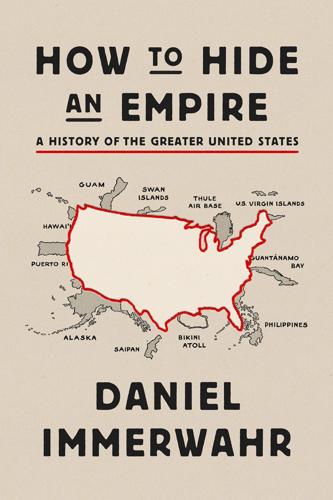
How to Hide an Empire: A History of the Greater United States
by Daniel Immerwahr · 19 Feb 2019
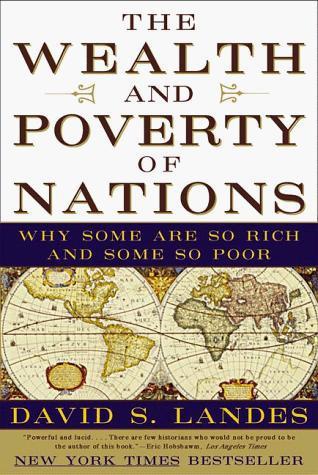
The Wealth and Poverty of Nations: Why Some Are So Rich and Some So Poor
by David S. Landes · 14 Sep 1999 · 1,060pp · 265,296 words
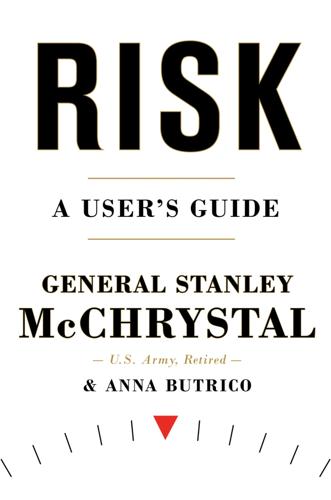
Risk: A User's Guide
by Stanley McChrystal and Anna Butrico · 4 Oct 2021 · 489pp · 106,008 words
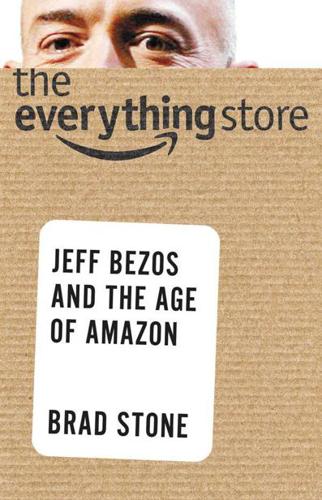
The Everything Store: Jeff Bezos and the Age of Amazon
by Brad Stone · 14 Oct 2013 · 380pp · 118,675 words
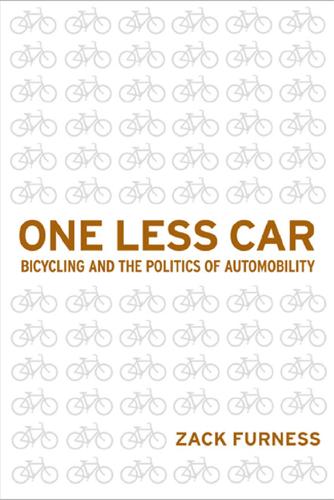
One Less Car: Bicycling and the Politics of Automobility
by Zack Furness and Zachary Mooradian Furness · 28 Mar 2010 · 532pp · 155,470 words
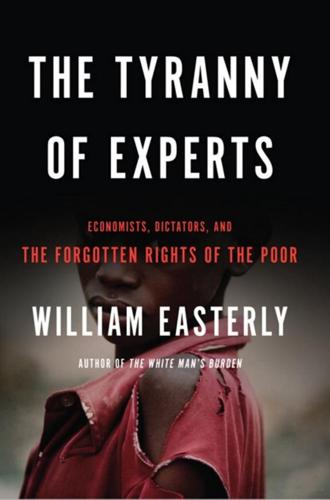
The Tyranny of Experts: Economists, Dictators, and the Forgotten Rights of the Poor
by William Easterly · 4 Mar 2014 · 483pp · 134,377 words
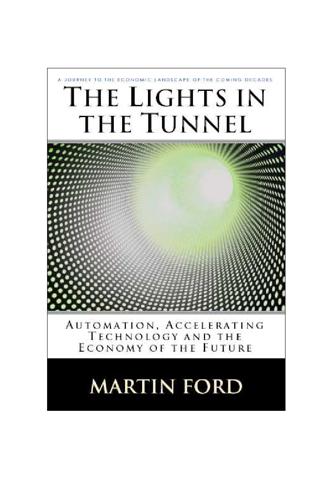
The Lights in the Tunnel
by Martin Ford · 28 May 2011 · 261pp · 10,785 words
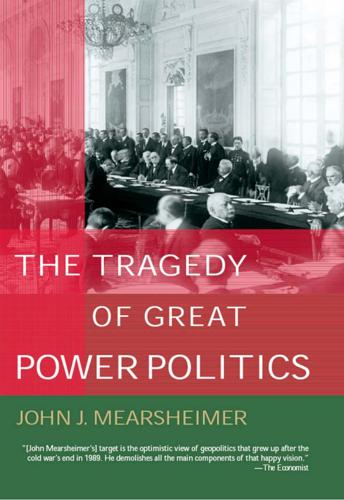
The Tragedy of Great Power Politics
by John J. Mearsheimer · 1 Jan 2001 · 637pp · 199,158 words
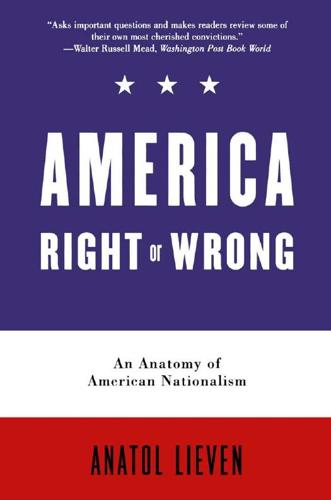
America Right or Wrong: An Anatomy of American Nationalism
by Anatol Lieven · 3 May 2010
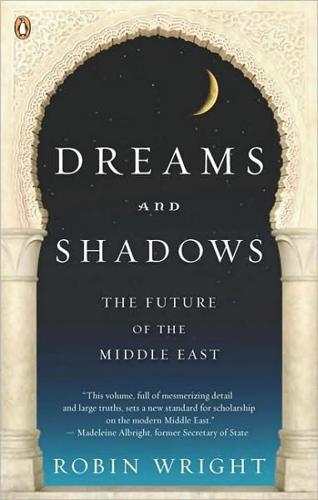
Dreams and Shadows: The Future of the Middle East
by Robin Wright · 28 Feb 2008 · 648pp · 165,654 words

The Power of Glamour: Longing and the Art of Visual Persuasion
by Virginia Postrel · 5 Nov 2013 · 347pp · 86,274 words
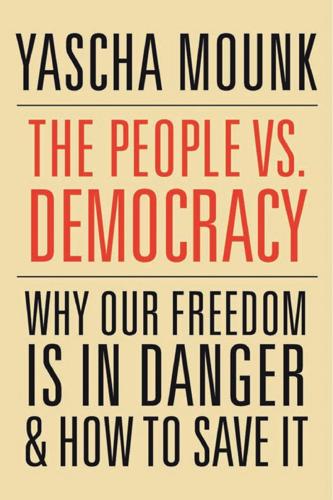
The People vs. Democracy: Why Our Freedom Is in Danger and How to Save It
by Yascha Mounk · 15 Feb 2018 · 497pp · 123,778 words
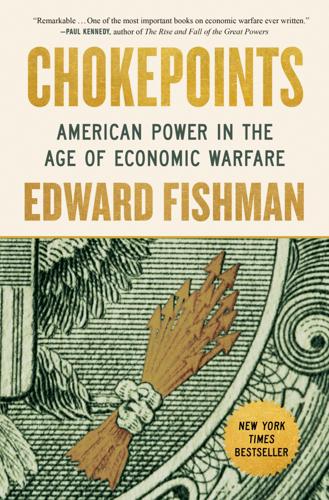
Chokepoints: American Power in the Age of Economic Warfare
by Edward Fishman · 25 Feb 2025 · 884pp · 221,861 words
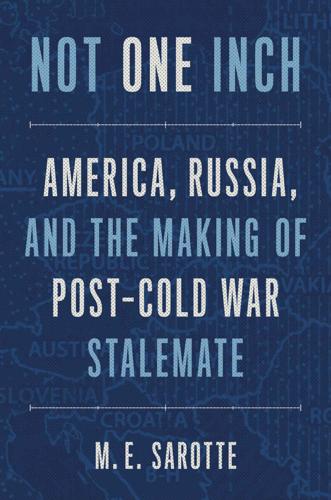
Not One Inch: America, Russia, and the Making of Post-Cold War Stalemate
by M. E. Sarotte · 29 Nov 2021 · 791pp · 222,536 words
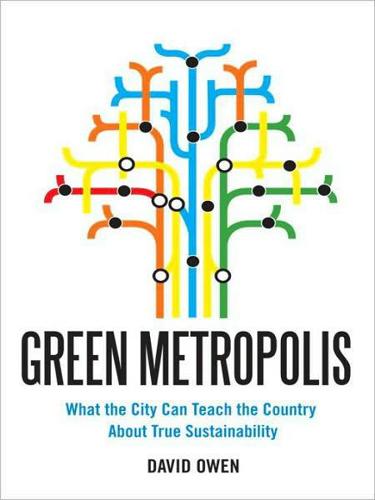
Green Metropolis: Why Living Smaller, Living Closer, and Driving Less Are Thekeys to Sustainability
by David Owen · 16 Sep 2009 · 313pp · 92,907 words
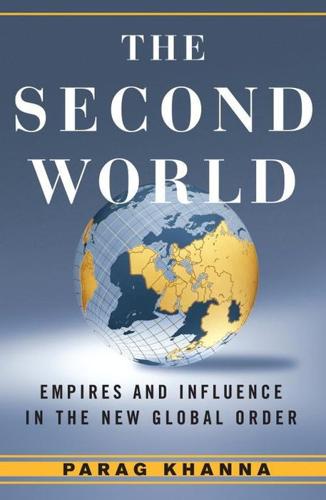
Second World: Empires and Influence in the New Global Order
by Parag Khanna · 4 Mar 2008 · 537pp · 158,544 words
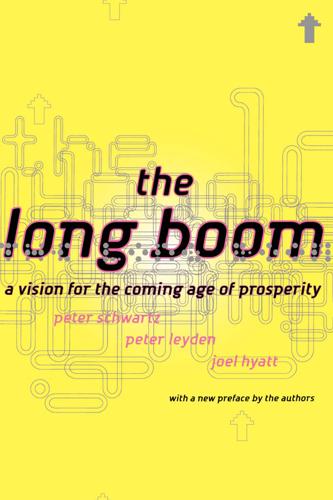
The Long Boom: A Vision for the Coming Age of Prosperity
by Peter Schwartz, Peter Leyden and Joel Hyatt · 18 Oct 2000 · 353pp · 355 words
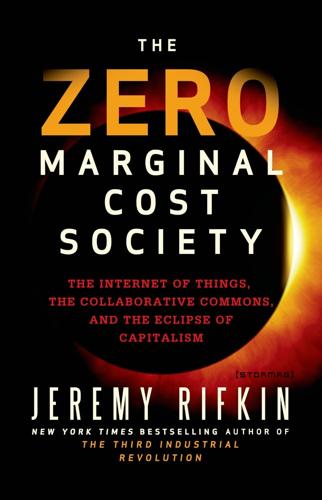
The Zero Marginal Cost Society: The Internet of Things, the Collaborative Commons, and the Eclipse of Capitalism
by Jeremy Rifkin · 31 Mar 2014 · 565pp · 151,129 words
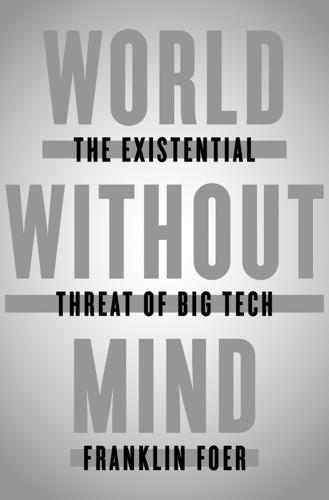
World Without Mind: The Existential Threat of Big Tech
by Franklin Foer · 31 Aug 2017 · 281pp · 71,242 words

Gaza: An Inquest Into Its Martyrdom
by Norman Finkelstein · 9 Jan 2018 · 578pp · 170,758 words
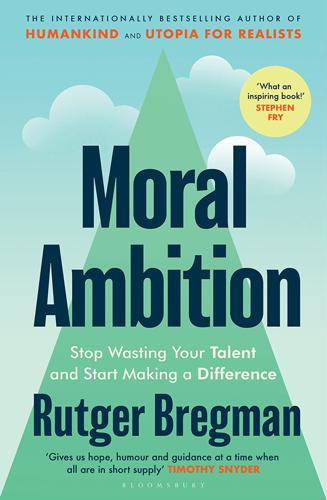
Moral Ambition: Stop Wasting Your Talent and Start Making a Difference
by Bregman, Rutger · 9 Mar 2025 · 181pp · 72,663 words
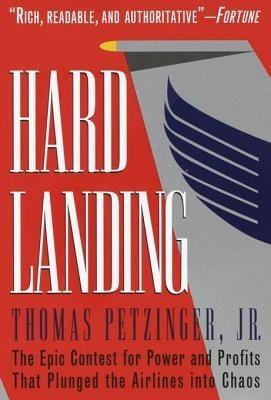
Hard Landing
by Thomas Petzinger and Thomas Petzinger Jr. · 1 Jan 1995 · 726pp · 210,048 words
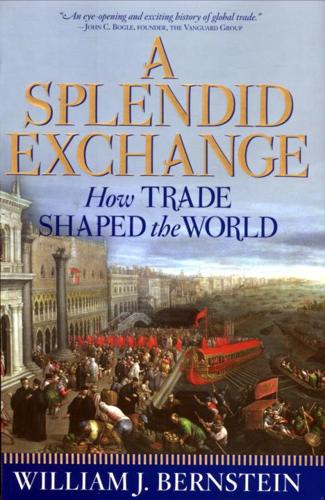
A Splendid Exchange: How Trade Shaped the World
by William J. Bernstein · 5 May 2009 · 565pp · 164,405 words
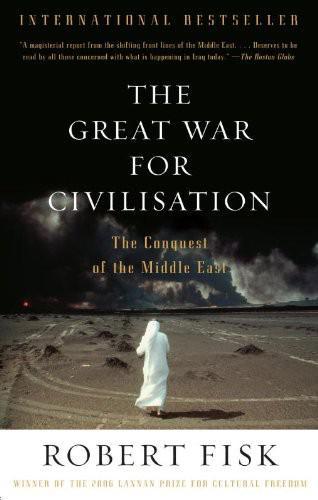
The Great War for Civilisation: The Conquest of the Middle East
by Robert Fisk · 2 Jan 2005 · 1,800pp · 596,972 words
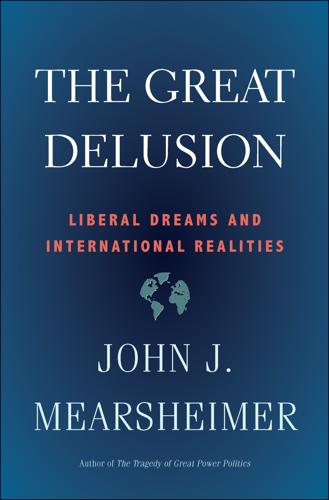
The Great Delusion: Liberal Dreams and International Realities
by John J. Mearsheimer · 24 Sep 2018 · 443pp · 125,510 words
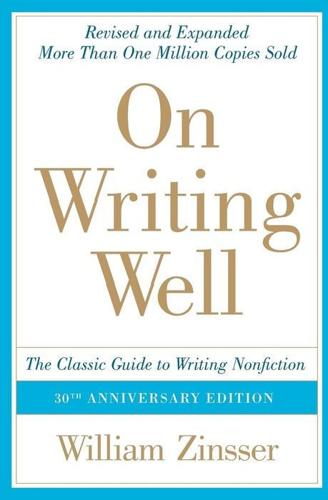
On Writing Well (30th Anniversary Edition)
by William Zinsser · 1 Jan 1976 · 309pp · 95,644 words
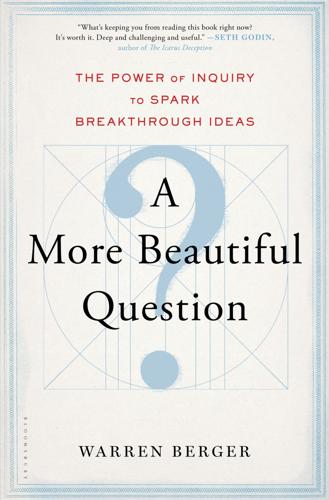
A More Beautiful Question: The Power of Inquiry to Spark Breakthrough Ideas
by Warren Berger · 4 Mar 2014 · 374pp · 89,725 words
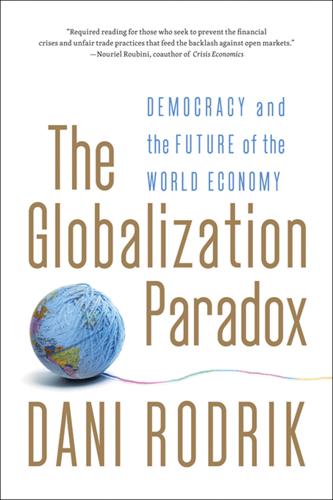
The Globalization Paradox: Democracy and the Future of the World Economy
by Dani Rodrik · 23 Dec 2010 · 356pp · 103,944 words
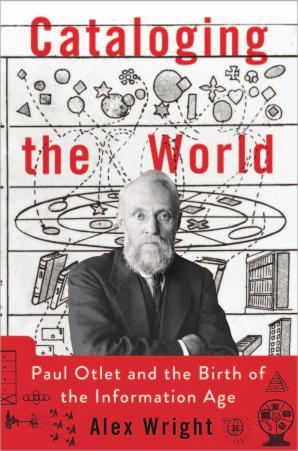
Cataloging the World: Paul Otlet and the Birth of the Information Age
by Alex Wright · 6 Jun 2014
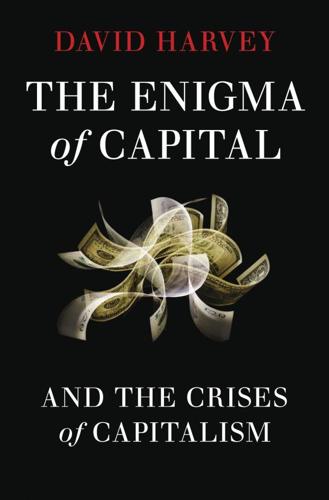
The Enigma of Capital: And the Crises of Capitalism
by David Harvey · 1 Jan 2010 · 369pp · 94,588 words
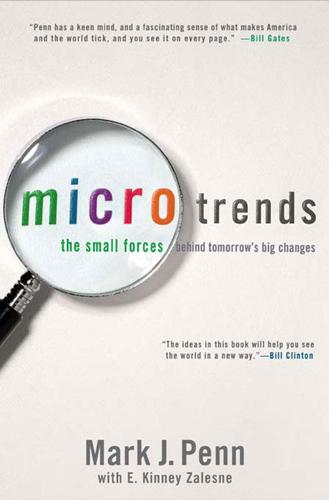
Microtrends: The Small Forces Behind Tomorrow's Big Changes
by Mark Penn and E. Kinney Zalesne · 5 Sep 2007 · 458pp · 134,028 words
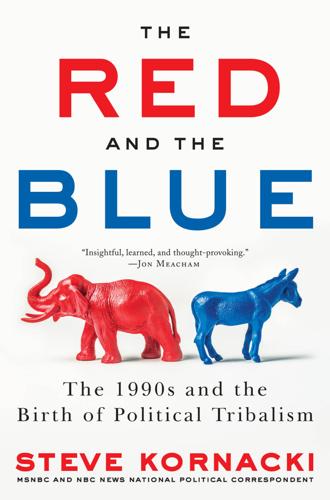
The Red and the Blue: The 1990s and the Birth of Political Tribalism
by Steve Kornacki · 1 Oct 2018 · 589pp · 167,680 words
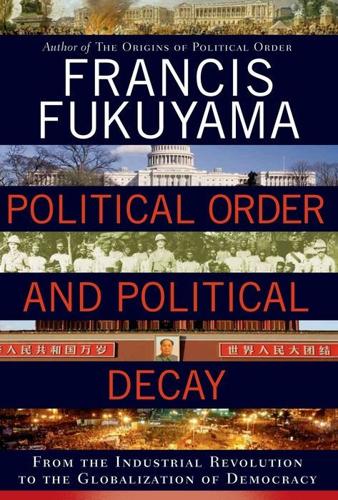
Political Order and Political Decay: From the Industrial Revolution to the Globalization of Democracy
by Francis Fukuyama · 29 Sep 2014 · 828pp · 232,188 words
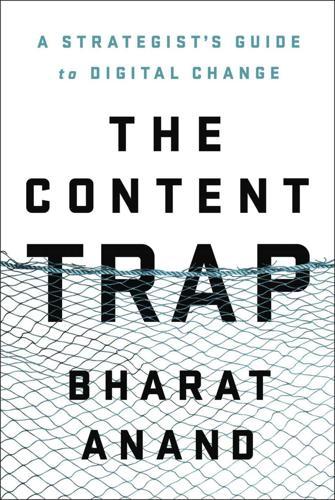
The Content Trap: A Strategist's Guide to Digital Change
by Bharat Anand · 17 Oct 2016 · 554pp · 149,489 words
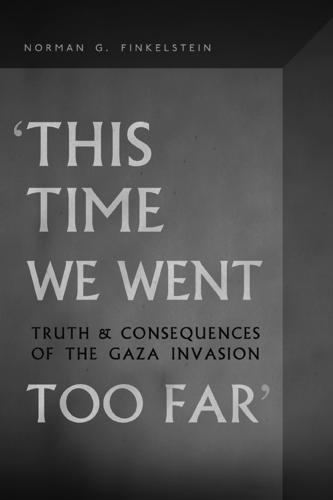
This Time We Went Too Far
by Norman G. Finkelstein · 1 Jan 2010 · 184pp · 55,923 words
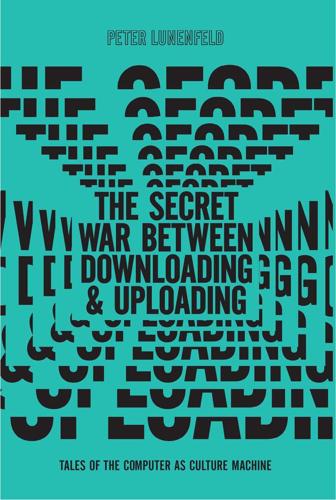
The Secret War Between Downloading and Uploading: Tales of the Computer as Culture Machine
by Peter Lunenfeld · 31 Mar 2011 · 239pp · 56,531 words
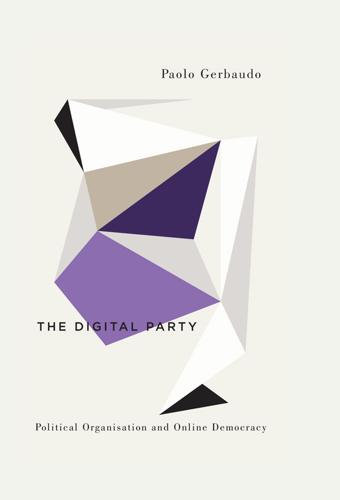
The Digital Party: Political Organisation and Online Democracy
by Paolo Gerbaudo · 19 Jul 2018 · 302pp · 84,881 words
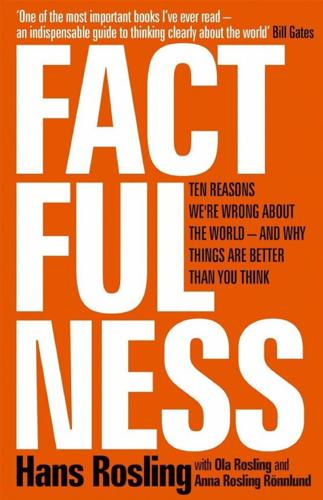
Factfulness: Ten Reasons We're Wrong About the World – and Why Things Are Better Than You Think
by Hans Rosling, Ola Rosling and Anna Rosling Rönnlund · 2 Apr 2018 · 288pp · 85,073 words
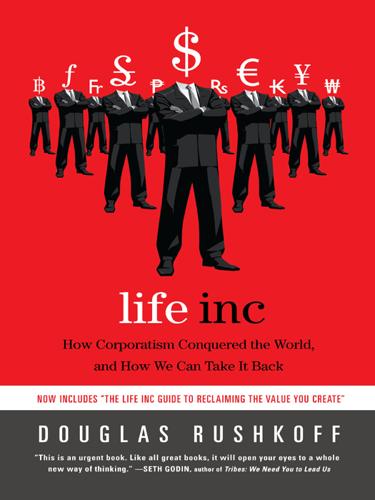
Life Inc.: How the World Became a Corporation and How to Take It Back
by Douglas Rushkoff · 1 Jun 2009 · 422pp · 131,666 words
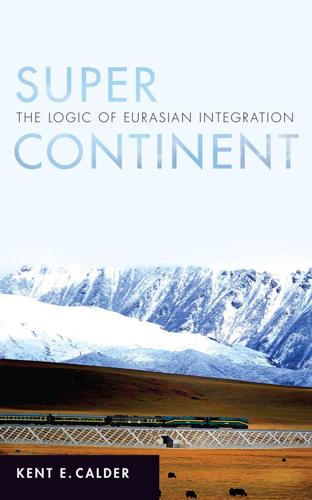
Super Continent: The Logic of Eurasian Integration
by Kent E. Calder · 28 Apr 2019
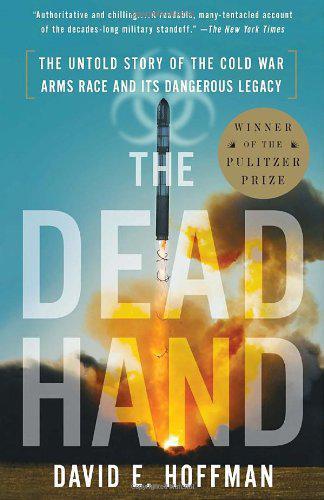
The Dead Hand: The Untold Story of the Cold War Arms Race and Its Dangerous Legacy
by David Hoffman · 1 Jan 2009 · 719pp · 209,224 words
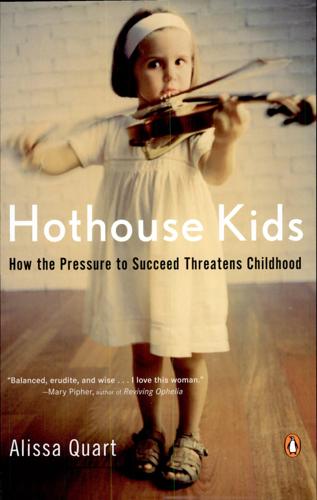
Hothouse Kids: The Dilemma of the Gifted Child
by Alissa Quart · 16 Aug 2006
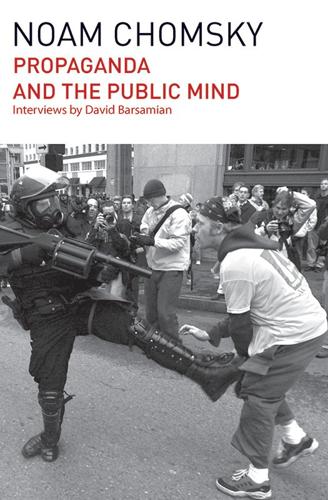
Propaganda and the Public Mind
by Noam Chomsky and David Barsamian · 31 Mar 2015
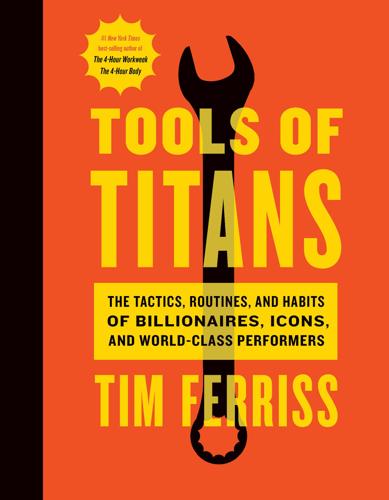
Tools of Titans: The Tactics, Routines, and Habits of Billionaires, Icons, and World-Class Performers
by Timothy Ferriss · 6 Dec 2016 · 669pp · 210,153 words
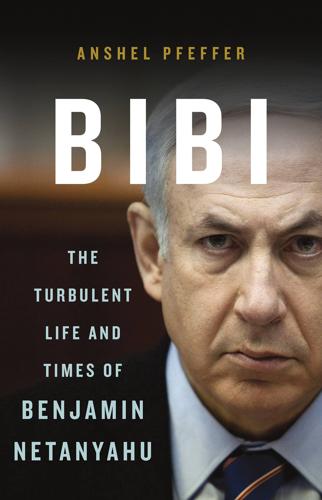
Bibi: The Turbulent Life and Times of Benjamin Netanyahu
by Anshel Pfeffer · 30 Apr 2018 · 530pp · 154,505 words
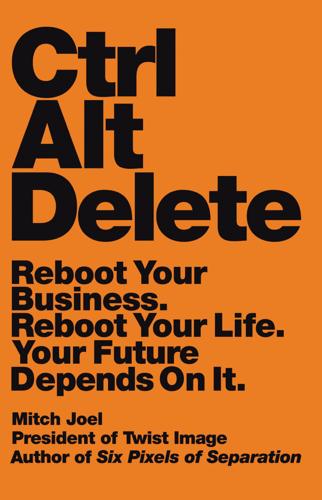
Ctrl Alt Delete: Reboot Your Business. Reboot Your Life. Your Future Depends on It.
by Mitch Joel · 20 May 2013 · 260pp · 76,223 words
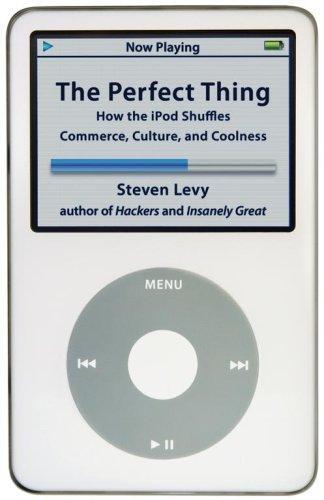
The Perfect Thing: How the iPod Shuffles Commerce, Culture, and Coolness
by Steven Levy · 23 Oct 2006 · 297pp · 89,820 words
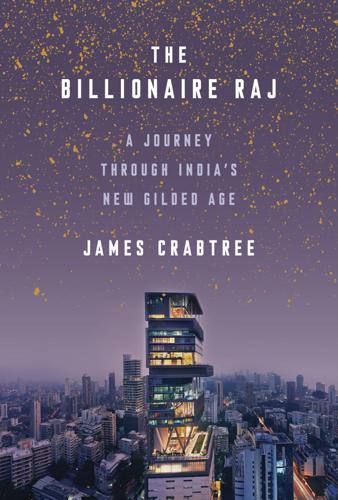
The Billionaire Raj: A Journey Through India's New Gilded Age
by James Crabtree · 2 Jul 2018 · 442pp · 130,526 words
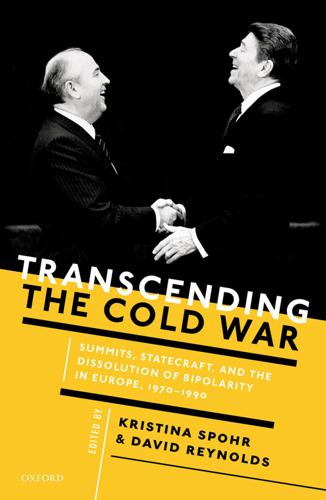
Transcending the Cold War: Summits, Statecraft, and the Dissolution of Bipolarity in Europe, 1970–1990
by Kristina Spohr and David Reynolds · 24 Aug 2016 · 627pp · 127,613 words
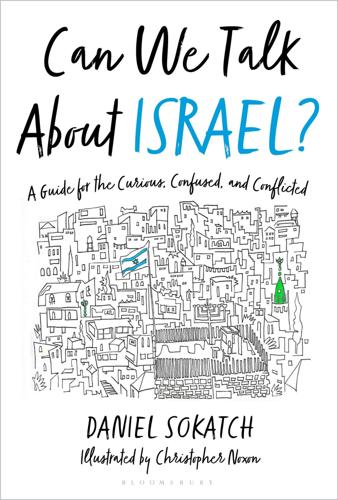
Can We Talk About Israel?: A Guide for the Curious, Confused, and Conflicted
by Daniel Sokatch · 18 Oct 2021 · 556pp · 95,955 words
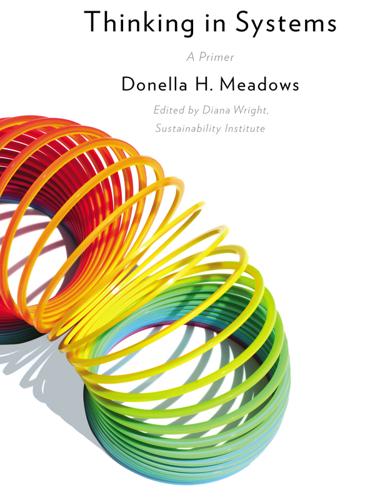
Thinking in Systems: A Primer
by Meadows. Donella and Diana Wright · 3 Dec 2008 · 243pp · 66,908 words
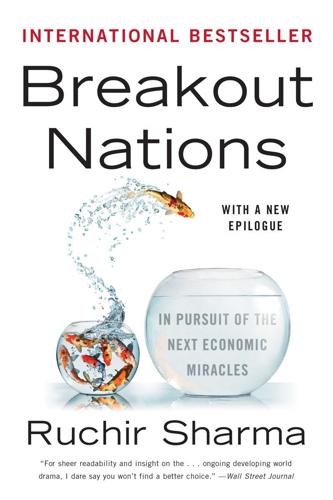
Breakout Nations: In Pursuit of the Next Economic Miracles
by Ruchir Sharma · 8 Apr 2012 · 411pp · 114,717 words
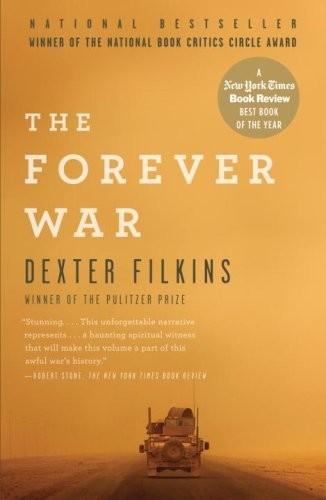
The Forever War
by Dexter Filkins · 15 Sep 2008 · 385pp · 115,697 words